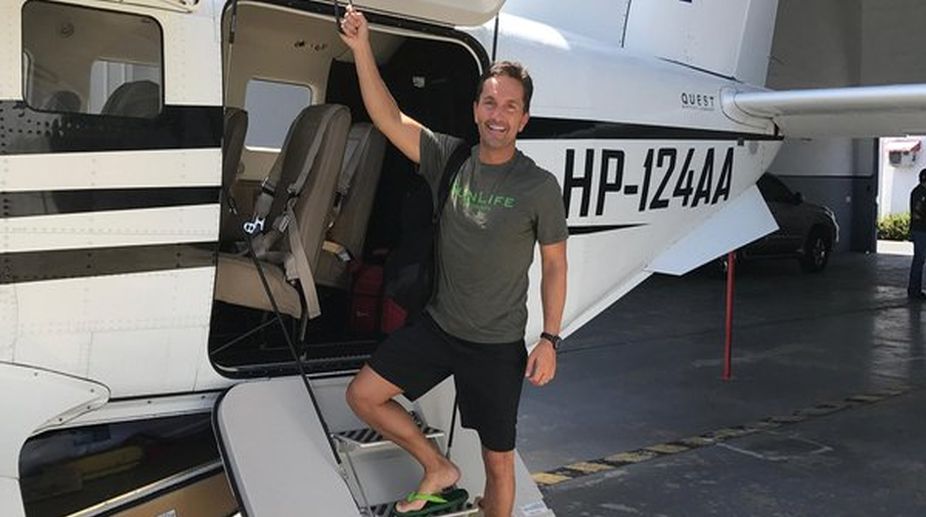Experts emphasize need for awareness in tackling addiction
Renowned experts from various fields came together to address the pressing global issue of addiction, offering holistic solutions that promise a path to wellness.

Khalil Rafati (PHOTO: TWITTER)
Glowing with health, Khalil Rafati is the best advert that his million-dollar juice brand could hope for. But almost two decades ago, he was a heroin addict on the verge of a fatal overdose, and paramedics were fighting to save his life for the ninth time.
In 2003, Rafati —who was born in Ohio — was hooked on heroin and crack cocaine, and weighed just 109 pounds. A decade prior, he had moved to Los Angeles to follow his dream of becoming a film star. But it didn’t quite work out. Instead, he made a living washing cars for stars like Slash. After dabbling with drugs, he gradually became addicted. He was then repeatedly arrested for drug-related offences, and was in and out of rehab. But something about his ninth brush with death snapped him out of this near-deadly cycle. After spending four months at a rehab centre, he has been clean ever since and his mental and physical health have replaced crack as his obsession.
Rafati was among millions of Americans who have struggled with addiction to opiates and heroin. In 2016, heroin use in the US hit its highest level for two decades according to the UN. And in Rafati’s opinion, “places that are shallow and pretentious as LA” lend themselves to addiction. “Millions of people come here, much like I did, to become rich and famous,” the 47-year-old tells The Independent. “When those dreams get shattered, it’s quite easy to pick up the drink and the drugs.”
Advertisement
As he learned more about healthy living, he decided he wanted to help those similarly affected by addition and opened his Riviera Recovery rehab centre. There, he would blend up juices and smoothies for his clients who would pay $10,000 to get clean. As word spread of his juices’ unique ingredients — from pollen to maca powder — Rafati realised he was onto something. He established Sunlife Organics in 2011 and opened a flagship store in Malibu. Now, Rafati has six juice bars and over 200 members of staff across California.
But Rafati could have hardly predicted his success. And fear, not money, was his greatest driving force to get clean. “The fear of returning to my hopeless state of despair,” he says.
Rafati shared his remarkable story in his autobiography I Forgot to Die. People have responded “incredibly,” to his experiences. “I think people are desperate to listen to stories of redemption and hope because there are so many people hurting in the world right now.”
“Sometimes I go on Amazon and read the reviews in tears because they are so beautiful,” he adds.
Despite his struggle with drugs, Rafati is resolute that chapter in his life is over. He rejects the idea that temptation is a daily struggle for addicts, or at least for him. “In the beginning, yes of course, if you have a physical addiction to something it’s going to take months to alleviate that physical craving,” he says. “But if somebody is willing to really change, if they really want to change, it’s not that complicated. We just love to complicate things, especially drug addicts and alcoholics. We are so sensitive and we think we are so clever and complex.”
At the same time, he has little time for those without sympathy for those hooked on drink and drugs. “They are obviously sick and broken themselves. We are all entitled to help; we should all help each other. No matter what the circumstance is. That doesn’t mean give money to a drug addicts, sometimes you have to say no to somebody is suffering from addiction. Or tell a loved one to move out from the house even though it upsets them — that in a way is helping them too. We must all love each other.”
The biggest misconception surrounding drug addiction, he goes on, is that it is a death sentence. “They (addicts) want to believe that it’s impossible to stop because that’s the easiest thing for them to believe. Taking responsibility for where we are in our lives and what has happened to us is a very heavy burden that most people are not willing to accept.”
But Rafati isn’t in the business of inflating his ego, or selling himself as a hero. “I don’t get too caught up in the ones claiming my book saved their life,” he adds. “I know better than that. I know better than to believe my own press. I can’t save anybody, we can only save ourselves.”
The Independent
Advertisement